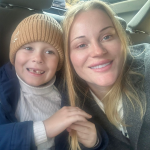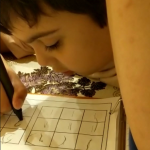Three Principles of Parenting a Child with Autism
Parenting is challenging for all parents, as they work to raise each child into an individual. However, for families raising a child with autism, the challenge is even greater, as these children have additional needs related to the disorder, which are highly individual. Therefore, there is no one-size-fits-all approach to building relationships with autistic children.
Nevertheless, there are general principles of parenting autistic children that can guide parents. These can be summarized as “Acceptance, Acknowledgment, and Understanding.” The first principle opens up new possibilities. Realizing that the child is not just being stubborn or temperamental, but is dealing with the symptoms of a complex disorder, helps parents understand the child better and view new challenges as opportunities for creative solutions. After receiving the diagnosis, it may be hard for parents to come to terms with this reality, but failing to accept it only creates new difficulties. Ignoring the disorder can make it seem like a bigger obstacle than it truly is. By acknowledging that the disorder won’t disappear by simply ignoring it, parents will find it easier to navigate life.
For the child, the parents’ attitude based on these three principles fosters confidence and helps to alleviate anxiety. All children have the right to expect that adults will understand their thoughts and feelings, accept them as they are, and support them in their life pursuits. Acceptance, in particular, influences self-esteem, the success of acquiring independent living skills, and the ability to follow social norms. Every success—whether related to studies, behavior, thinking, emotional control, or other aspects—should be celebrated. Conversely, in cases of failure, difficulties, or disappointment, children should be supported. This helps them become resilient and goal-oriented, overcoming fear of their emotions and the unpredictability of the world, which often threatens the stability they crave. Both the child and the parents need to understand that the child is unique and lead a fulfilling life in light of this fact.
Solving Psychological Issues in Autism
Solving psychological problems related to autism can often be the most challenging task. Traditional approaches don’t always completely resolve inner contradictions. The primary cause of the difficulties—the autism itself—continues to exert influence, with the child’s perception of the world and behavior remaining distinct. Therefore, it is essential to address the root cause of the disorder, rather than just attempting to alleviate the symptoms. Recently, stem cell therapy has increasingly been recommended by doctors for a comprehensive approach to treating autism.
Stem cell therapy is considered the safest option as it involves transplanting stem cells from the patient’s own body. This ensures maximum safety, as the transplanted material is not rejected. Additionally, stem cells activate the body’s regenerative abilities and transform into healthy versions of damaged brain and nerve cells, effectively replacing them. This leads to long-term, and in most cases, lifelong normalization of behavior, with the symptoms of autism either disappearing or becoming less pronounced. This increases the effectiveness of additional methods for correcting autism.
The versatility of stem cell therapy is evident in its applicability from early childhood to old age, with very few contraindications. It is possible that in the future, stem cell therapy will become the primary approach used to combat autism and its symptoms. Currently, it is practiced in the best clinics worldwide, though they are few. One of these is the Mardaleishvili Medical Center, where highly qualified doctors, trained abroad and with extensive successful experience in stem cell transplantation, provide treatment. The use of state-of-the-art equipment contributes to achieving the most positive outcomes. The services are financially accessible when compared to prices in other countries with developed healthcare systems. Additionally, the clinic offers practical assistance in planning the trip and solving other related matters, including accommodation.
Complete the contact form—and stem cell therapy will make raising an autistic child easier!
Autism Treatment Center Videos
Autism treatment with own stem cells
Cord blood association congress
International Quality Crown
Autism Treatment Reviews
Autism treatment with own stem cells
The story of Alessandro (6 years old)
Autism Patient Testimonial - Stem Cell Treatment
Clients Testimonials

Feedback from Yulia, mother of Emily (7 years old) Read More

Feedback by Everita, Katrina’s mother (5 years old) Read More

Feedback from Igor, David’s father (12 years old) Read More

Feedback from Olga, Fedya’s mother Read More

Feedback from Natalia, Radomir’s mother (15 years old) Read More












